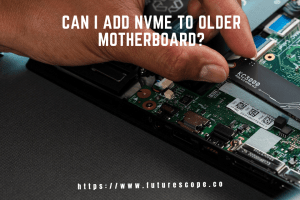Last Updated on March 8, 2017 by Editor Futurescope
The promise of quantum computing is closer to being achieved. IBM has announced that they will begin raising the first universal quantum computers. Although there is no official date for commercial availability, the expert computer maker ensures that IBM Q will outperform current and most powerful supercomputers in speed and computing capacity.
With quantum computing you have to do almost like quantum physics: reset the brain and place the notions of classical physics. At the subatomic level, the particles have a number of strange properties that escape conventional logic. The most interesting for computing is the quantum superposition, the ability of an electron, for example, to have several states simultaneously.
While conventional bits, the basis of current computing, operate the information in two alternative states (zeros or ones, on or off). The seconds can also have both values at the same time. The practical consequence is that while the sum of more bits to a machine linearly increases its capacity to manage the information, the sum of more qubits increases it exponentially.
Quantum computers rely on properties of subatomic particles
“Classical computers are extraordinarily powerful and will continue to enhance and sustain everything we do in business and society. But there are many problems that a classic computer will never be able to face, “IBM Systems Vice President Tom Rosamilia said during the presentation of the plan to build the IBM Qs.” To get the most complex knowledge, we need a quantum computer “, Add.
The objective of IBM is to develop a quantum computer with 50 qubits in a first phase. They assert that such a machine would outperform the top supercomputers in the Top500 list. Although IBM has not given dates when the first IBM Q will be available, they will not be available in stores. These machines are not intended to process texts or play. Only large corporations or research centers can take advantage of it.
Also, the qubits are very delicate. As happens to other particles, the lesser thermal or electromagnetic disturbance can alter its state, causing errors. That is why qubits are maintained at temperatures close to absolute zero. This makes the idea of marketing the machines even more impracticable.
Detail of the inside of IBM’s universal quantum computer. IBM Q Research
The idea of IBM is to offer the IBM Q as a service through its network of cloud computing, or cloud computing. To do so, it will take advantage of the IBM Quantum Experience project, a platform released last year on a five-qubit processor. Open to experts and researchers, it has allowed IBM to test its approach to what quantum computing should be.
And is that IBM is not the only one that pursues the quantum dream. Also Microsoft or Google, and each with a different approach. In fact, quantum computers can now be purchased for a few million dollars. They are the D-Wave manufactured by the Canadian company of the same name. In January of this year they announced the availability of their D-Wave 2000Q. The figure refers to the 2,000 qubits that the machine has under a complex cooling system.
But the 2,000 qubits of D-Wave are not necessarily more than the 50 qubits of IBM. It is another strangeness of quantum computing. Canadian computers use a method called quantum which, while facilitating their development, limits them to very specific tasks. Google, for example, bought a D-Wave to explore the use of artificial intelligence in searches.
That is why IBM has highlighted in its presentation the universal surname of its IBM Q. It does not seem probable that someday they will be general purpose machines such as current computers. In fact, they do not pretend either. And if not, here is the list of possible applications that IBM imagines for its Q: discovery of new drugs and materials, boosting the learning of machines for artificial intelligence or securing the data traveling through the networks taking advantage of the rarities of physics Quantum
Also, the qubits are very delicate. As happens to other particles, the lesser thermal or electromagnetic disturbance can alter its state, causing errors. That is why qubits are maintained at temperatures close to absolute zero. This makes the idea of marketing the machines even more impracticable.
The idea of IBM is to offer the Q as a service through its network of cloud computing, or cloud computing. To do so, it will take advantage of the IBM Quantum Experience project, a platform released last year on a five-qubit processor. Open to experts and researchers, it has allowed IBM to test its approach to what quantum computing should be.









